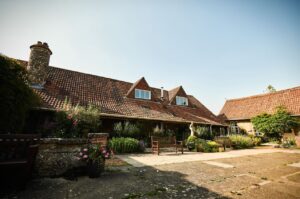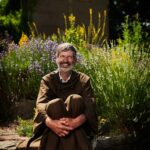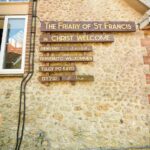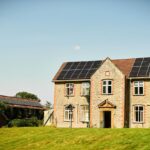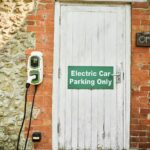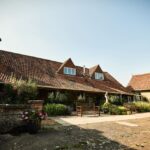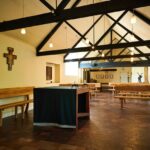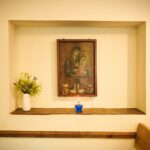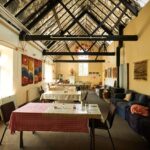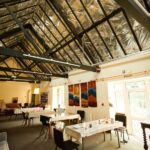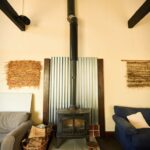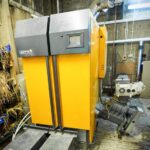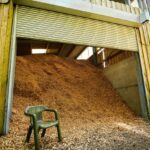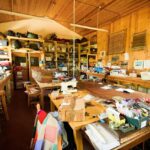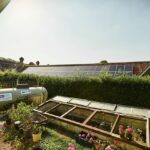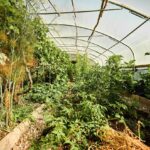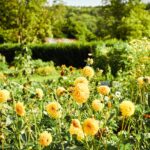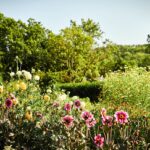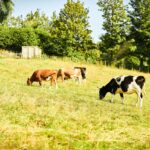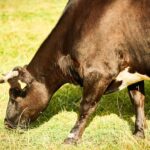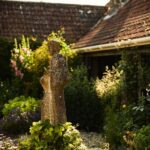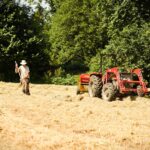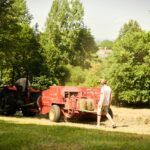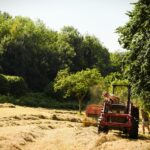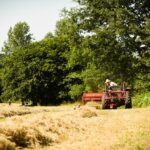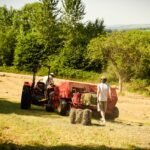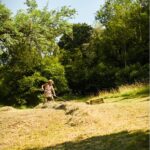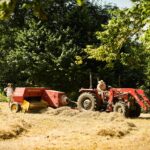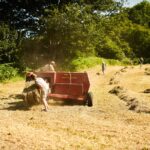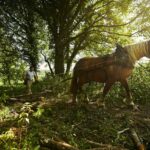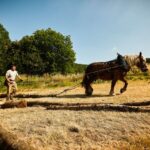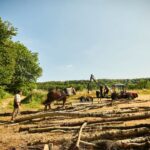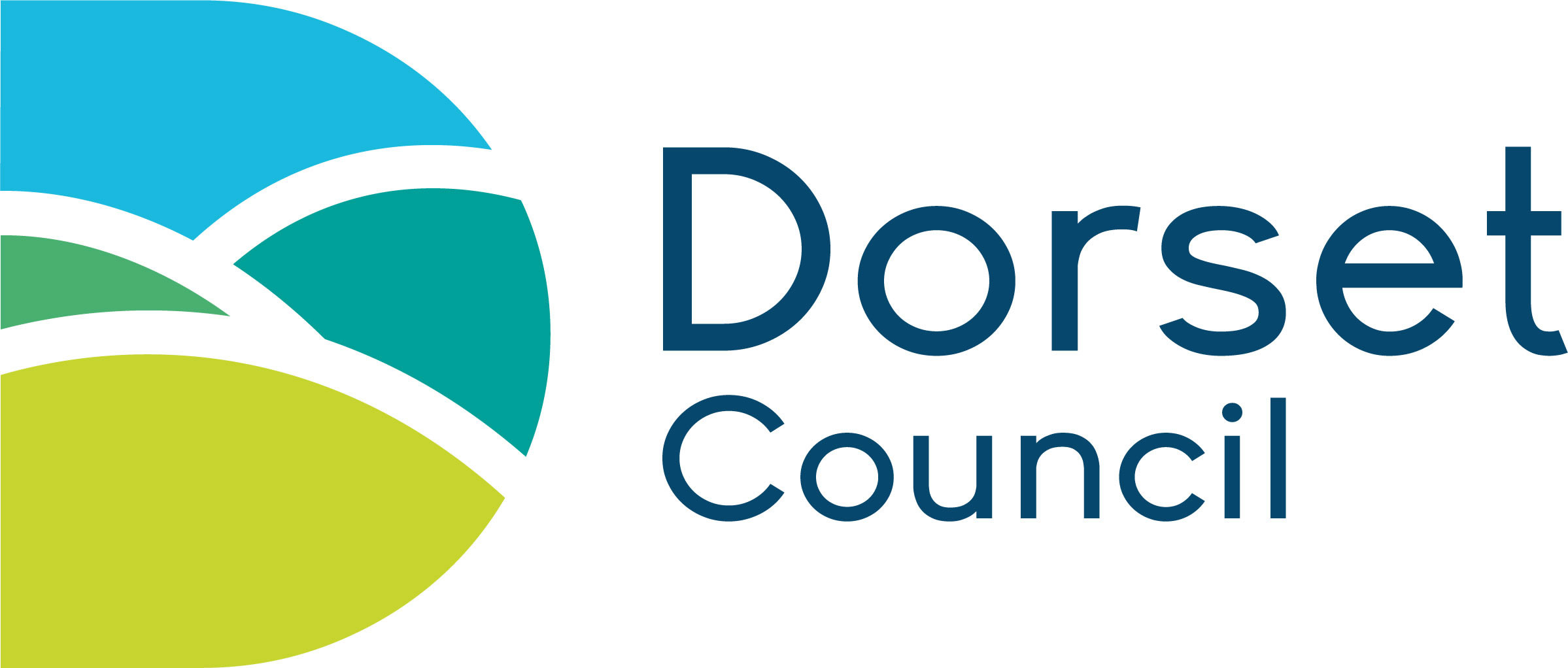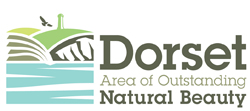Since making this commitment, they have made significant changes to their diets, activities, energy-use, and land management practices. And in doing so have reduced the carbon footprint of their Friary by around 80%. These efforts have not gone unnoticed, in 2016 they achieved the first Gold Award in the Ecochurch Scheme. Now, at the time of writing, there are only 21 churches (of many denominations) with gold awards.
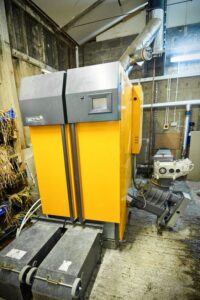 The first step they took was to convert all their buildings at Hilfield Friary to biomass heating, this significantly reduced their emissions and their reliance on fossil fuels (specifically LPG). Fuel for the boiler is locally sourced, some coming from the coppicing of their woodlands, some from Dorset Council’s own Hilfield Hill woodland which adjoins the Friary’s land, and some from a woodchip company.
The first step they took was to convert all their buildings at Hilfield Friary to biomass heating, this significantly reduced their emissions and their reliance on fossil fuels (specifically LPG). Fuel for the boiler is locally sourced, some coming from the coppicing of their woodlands, some from Dorset Council’s own Hilfield Hill woodland which adjoins the Friary’s land, and some from a woodchip company.
And they didn’t stop there, they went on to install solar panels on the roof of their chapel, moved to a more vegetarian diet, began sowing wildflower meadows in available fields, re-established wetlands on their land, invested in electric vehicles and charging, and improved the insulation of their buildings and spaces.
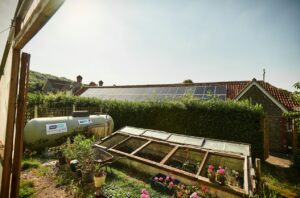
But, even after all these changes, they found they still had a carbon footprint (around 21 tonnes of CO2e a year). It soon became clear that most of this footprint came from the electricity they were importing from the grid to power the Friary and its community. So, in their drive to get as close to net-zero as possible, they sought the help of Low Carbon Dorset to decarbonise this demand.


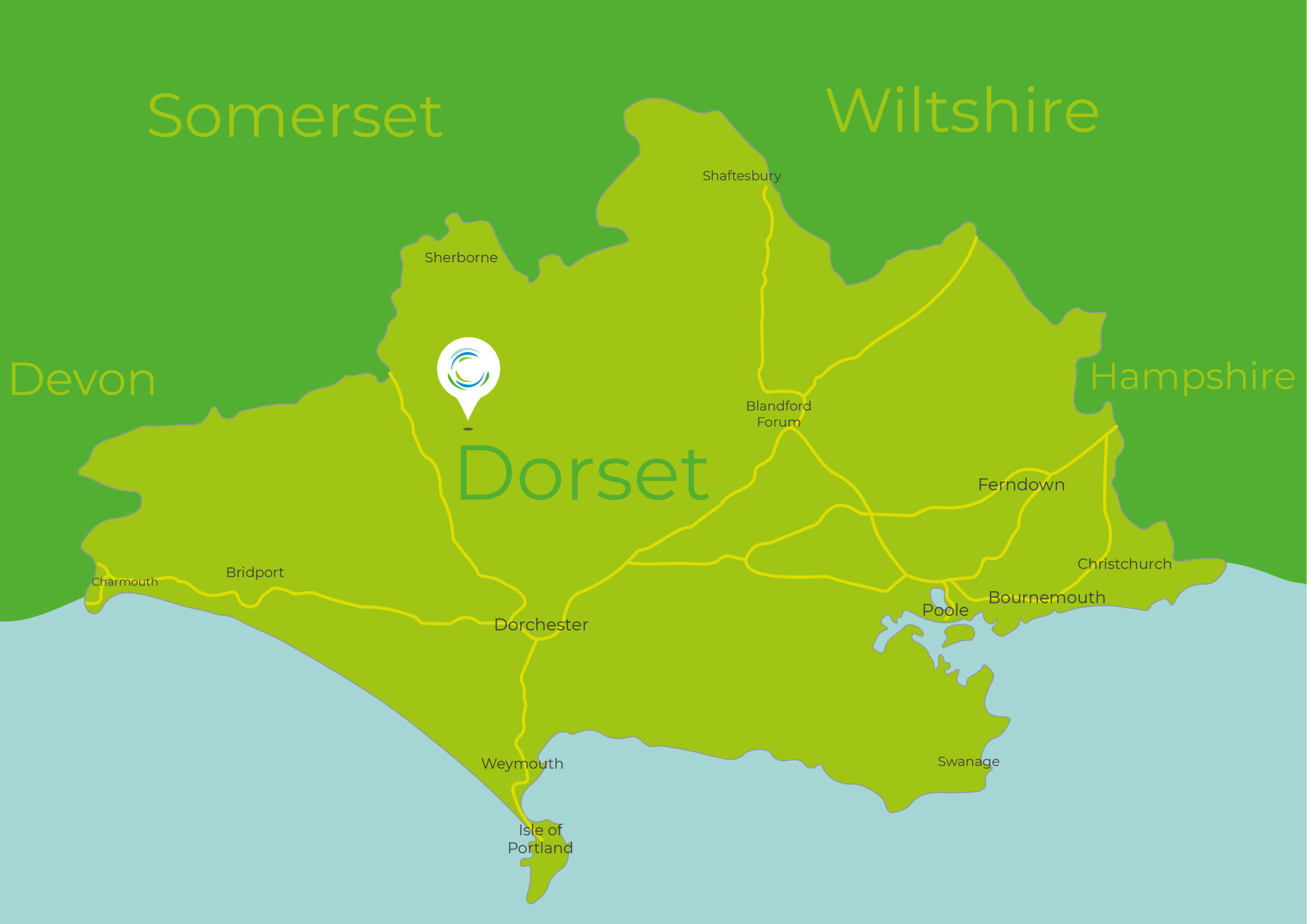
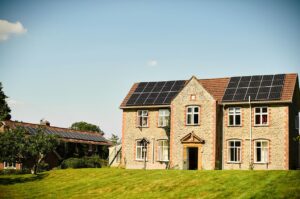
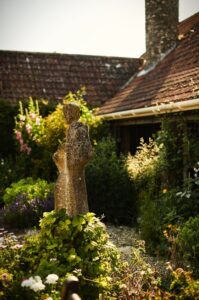 Franciscan brothers first arrived at the Hilfield Friary site in 1921 to establish a home of refuge and rehabilitation for displaced men in rural England. From this small beginning the Society of St Francis community has grown substantially.
Franciscan brothers first arrived at the Hilfield Friary site in 1921 to establish a home of refuge and rehabilitation for displaced men in rural England. From this small beginning the Society of St Francis community has grown substantially. The first step they took was to convert all their buildings at Hilfield Friary to biomass heating, this significantly reduced their emissions and their reliance on fossil fuels (specifically LPG). Fuel for the boiler is locally sourced, some coming from the coppicing of their woodlands, some from Dorset Council’s own Hilfield Hill woodland which adjoins the Friary’s land, and some from a woodchip company.
The first step they took was to convert all their buildings at Hilfield Friary to biomass heating, this significantly reduced their emissions and their reliance on fossil fuels (specifically LPG). Fuel for the boiler is locally sourced, some coming from the coppicing of their woodlands, some from Dorset Council’s own Hilfield Hill woodland which adjoins the Friary’s land, and some from a woodchip company.
